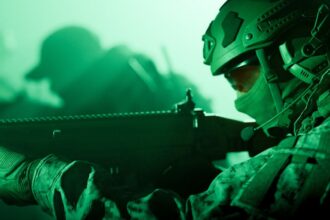Blackwater, founded in 1997 by former Navy SEAL Erik Prince, emerged as a prominent player in the realm of private military contracting. Initially established to provide training and security services, the company quickly gained traction within the U.S. government, particularly during the post-9/11 era.
The company’s rapid growth was fueled by lucrative government contracts, which allowed it to expand its operations and recruit a diverse array of personnel, including former military and law enforcement officials. However, Blackwater’s ascent was not without controversy.
As it became increasingly involved in military operations, questions arose regarding the ethics and legality of employing private contractors in combat zones. Critics argued that the privatization of military functions blurred the lines of accountability and oversight, leading to a lack of transparency in operations. Despite these concerns, Blackwater continued to thrive, capitalizing on the growing trend of outsourcing military functions to private entities.
This trajectory set the stage for a series of events that would ultimately define Blackwater’s legacy as a controversial private military company.
Key Takeaways
- Blackwater started as a security contractor and evolved into a controversial private military company.
- The company played a polarizing role in the Iraq War, with supporters and critics of its presence.
- The Nisour Square Massacre became a defining incident for Blackwater, leading to widespread infamy.
- Blackwater rebranded as Academi, attempting to distance itself from its controversial past.
- The company has been involved in covert operations, shedding light on the shadowy side of private military companies.
Blackwater’s Role in the Iraq War: A Polarizing Presence
During the Iraq War, Blackwater’s presence became a focal point of debate surrounding the use of private military contractors. The company was contracted to provide security for U.S. diplomats and other officials, operating in a volatile environment where traditional military forces were stretched thin.
Blackwater’s operatives were often seen as a necessary supplement to U.S. military efforts, providing protection in high-risk areas where conventional forces could not operate effectively. However, this reliance on private contractors also raised significant ethical questions about the role of profit-driven entities in warfare.
As Blackwater’s operations expanded in Iraq, so did the scrutiny surrounding its actions. The company’s aggressive tactics and perceived lack of accountability led to growing resentment among local populations and heightened tensions between U.S. forces and Iraqi civilians.
While some viewed Blackwater as a vital asset in ensuring the safety of American personnel, others saw it as an embodiment of the excesses of privatized warfare. This polarization reflected broader concerns about the implications of outsourcing military functions to private companies, raising questions about the moral and legal responsibilities of such entities in conflict zones.
The Nisour Square Massacre: Blackwater’s Infamous Incident

The Nisour Square massacre on September 16, 2007, marked a turning point for Blackwater and solidified its reputation as a controversial entity in the realm of private military contracting. During this tragic incident, Blackwater operatives opened fire on unarmed Iraqi civilians in Baghdad, resulting in the deaths of 17 individuals and injuring many others. The event sparked outrage both domestically and internationally, leading to widespread condemnation of Blackwater’s actions and raising serious questions about the conduct of private contractors in war zones.
In the aftermath of the massacre, investigations were launched to determine the circumstances surrounding the incident and whether Blackwater operatives acted within the bounds of their authority. The U.S. government faced intense pressure to hold those responsible accountable, leading to criminal charges against several Blackwater employees.
The Nisour Square incident not only tarnished Blackwater’s reputation but also ignited a broader debate about the role of private military companies in modern warfare and their accountability for actions taken in conflict zones.
Blackwater’s Rebranding: Transition to Academi
| Metrics | 2010 | 2011 | 2012 |
|---|---|---|---|
| Revenue (in millions) | 1,000 | 800 | 600 |
| Number of employees | 5,000 | 4,000 | 3,000 |
| Number of contracts | 100 | 80 | 60 |
In response to mounting criticism and legal challenges following the Nisour Square massacre, Blackwater underwent a significant rebranding effort in 2011, changing its name to Academi. This transition was part of a broader strategy to distance itself from its controversial past and restore its image as a reputable security provider. The rebranding aimed to signal a commitment to professionalism and accountability while continuing to operate within the private military contracting space.
Despite the name change, Academi faced ongoing scrutiny regarding its operations and practices. Critics argued that rebranding alone could not erase the legacy of violence and misconduct associated with Blackwater. Nevertheless, Academi sought to reposition itself as a leader in security training and consulting services, emphasizing its focus on ethical practices and adherence to international standards.
This shift reflected an acknowledgment of the need for greater accountability within the private military industry while also highlighting the challenges inherent in overcoming a tarnished reputation.
Blackwater’s Involvement in Covert Operations: The Shadowy Side of Private Military Companies
Blackwater’s operations extended beyond conventional security services into the realm of covert operations, raising concerns about the implications of privatizing sensitive military functions. The company’s involvement in clandestine activities highlighted the shadowy side of private military companies and their potential role in shaping U.S. foreign policy without public oversight. Reports emerged suggesting that Blackwater operatives participated in missions that included intelligence gathering and direct action operations, blurring the lines between traditional military roles and private contracting. The use of private contractors for covert operations raised significant ethical questions about accountability and oversight. Unlike regular military personnel who operate under strict rules of engagement and are subject to military law, private contractors often operate with less transparency and fewer regulations. This lack of oversight can lead to abuses of power and violations of human rights, further complicating the already contentious relationship between private military companies and local populations in conflict zones.
Blackwater’s Legal Troubles: Lawsuits, Investigations, and Controversies

Blackwater’s tumultuous history has been marked by numerous legal troubles, including lawsuits, investigations, and controversies that have plagued the company since its inception. Following the Nisour Square massacre, several lawsuits were filed against Blackwater by victims’ families seeking justice for their losses. These legal battles highlighted the challenges faced by individuals seeking accountability from private military contractors operating in conflict zones.
In addition to civil lawsuits, Blackwater faced criminal investigations by U.S. authorities regarding its conduct in Iraq. Several employees were charged with various offenses related to the Nisour Square incident, leading to convictions for some individuals involved.
However, critics argued that these legal actions fell short of addressing the systemic issues surrounding private military contracting and accountability for actions taken by contractors in war zones. The ongoing legal troubles served as a reminder of the complexities inherent in regulating private military companies and ensuring that they adhere to ethical standards.
The rise of Blackwater and other private military companies has had profound implications for U.S. foreign policy and military strategy. As these entities became integral components of military operations abroad, questions arose about the consequences of outsourcing critical functions traditionally performed by state actors.
The privatization of war has led to concerns about accountability, oversight, and the potential erosion of democratic control over military actions. Blackwater’s influence on U.S. foreign policy is evident in its involvement in various conflicts around the world, where it has operated alongside conventional military forces.
This partnership has raised ethical dilemmas regarding the use of force and the responsibilities associated with privatized warfare. As policymakers grapple with these challenges, they must consider how to balance national security interests with the need for transparency and accountability in military operations.
Blackwater’s Impact on Civilian Populations: Allegations of Human Rights Violations
The actions of Blackwater have had significant repercussions for civilian populations in conflict zones where it operated. Allegations of human rights violations have emerged over the years, with reports detailing instances of excessive use of force and disregard for civilian safety. These incidents have fueled resentment among local communities and contributed to a broader narrative about the negative impact of privatized military operations on vulnerable populations.
The consequences of Blackwater’s actions extend beyond individual incidents; they have shaped perceptions of U.S. involvement in foreign conflicts and contributed to anti-American sentiment in regions affected by violence. As civilians bear the brunt of these operations, questions arise about the moral implications of employing private contractors in warfare and their responsibility toward local populations.
Addressing these concerns is essential for fostering trust between foreign militaries and civilian communities.
Blackwater’s Role in Training Foreign Militaries: The Global Reach of Private Military Companies
In addition to its security services, Blackwater has played a significant role in training foreign militaries around the world. The company’s expertise in tactical training and operational support has made it an attractive partner for governments seeking to enhance their military capabilities. However, this involvement raises important questions about the implications of privatizing military training and support functions.
Critics argue that such partnerships can lead to unintended consequences, including exacerbating conflicts or contributing to human rights abuses by foreign forces trained by private contractors. As private military companies continue to expand their global reach, it becomes increasingly important to scrutinize their role in shaping foreign militaries and influencing international security dynamics.
Blackwater’s Legacy: Shaping the Future of Private Military Companies
The legacy of Blackwater is complex and multifaceted, reflecting both its contributions to security operations and its controversial history marked by violence and misconduct. As one of the first major private military companies to gain prominence during the War on Terror, Blackwater has set precedents that continue to shape discussions surrounding privatized warfare today. Its experiences have prompted calls for greater regulation and oversight within the industry as policymakers grapple with how best to address the challenges posed by private military contractors.
Blackwater’s legacy serves as a cautionary tale about the potential pitfalls associated with outsourcing military functions to private entities. As governments increasingly rely on private contractors for security services, lessons learned from Blackwater’s history can inform future policies aimed at ensuring accountability and ethical conduct within this burgeoning industry.
The Future of Blackwater: Challenges and Opportunities for Accountability and Oversight
Looking ahead, Blackwater faces significant challenges as it navigates a landscape marked by heightened scrutiny and calls for accountability within the private military contracting industry. The company’s rebranding efforts as Academi may provide an opportunity for renewal; however, it must contend with lingering perceptions tied to its past actions. Ensuring transparency and adherence to ethical standards will be crucial for rebuilding trust among stakeholders.
Moreover, as discussions surrounding privatized warfare continue to evolve, there is an opportunity for meaningful reform within the industry as a whole. Advocates for accountability are pushing for stronger regulations governing private military companies, emphasizing the need for oversight mechanisms that hold contractors accountable for their actions in conflict zones. The future trajectory of Blackwater will depend on its ability to adapt to these changing expectations while addressing past grievances through meaningful reforms that prioritize ethical conduct and respect for human rights.
In conclusion, Blackwater’s journey from a security contractor to a controversial private military company encapsulates broader debates about privatization in warfare and its implications for accountability, ethics, and civilian safety. As society grapples with these complex issues, understanding Blackwater’s legacy will be essential for shaping future policies governing private military operations both domestically and internationally.
In exploring the complex narrative of private military companies, the “Untold Story of Blackwater” sheds light on the intricate operations and controversies surrounding one of the most infamous security firms. For those interested in delving deeper into the broader implications of private military operations and their impact on global conflicts, a related article can be found on In The War Room. This resource provides further insights into the strategic roles and ethical considerations of private military companies in modern warfare, complementing the themes discussed in the Blackwater story.
WATCH THIS! From Tehran to Blackwater: The Real Story
FAQs
What is Blackwater?
Blackwater is a private military company (PMC) founded in 1997 by Erik Prince and Al Clark. It provided security, training, and military services, primarily to the United States government.
What is the untold story of Blackwater?
The untold story of Blackwater refers to the lesser-known aspects of the company’s operations, controversies, and impact on global security and military contracting.
What controversies has Blackwater been involved in?
Blackwater has been involved in several controversies, including the 2007 Nisour Square massacre in Baghdad, where its employees killed 17 Iraqi civilians. The company has also faced allegations of weapons smuggling, human rights abuses, and improper conduct in its operations.
What impact has Blackwater had on military contracting?
Blackwater’s activities have raised questions about the use of private military companies and their accountability. It has also influenced the debate on the privatization of military and security services.
What happened to Blackwater?
In 2009, Blackwater rebranded itself as Xe Services LLC, and later as Academi. The company underwent changes in ownership and leadership, and its operations have evolved over time.




